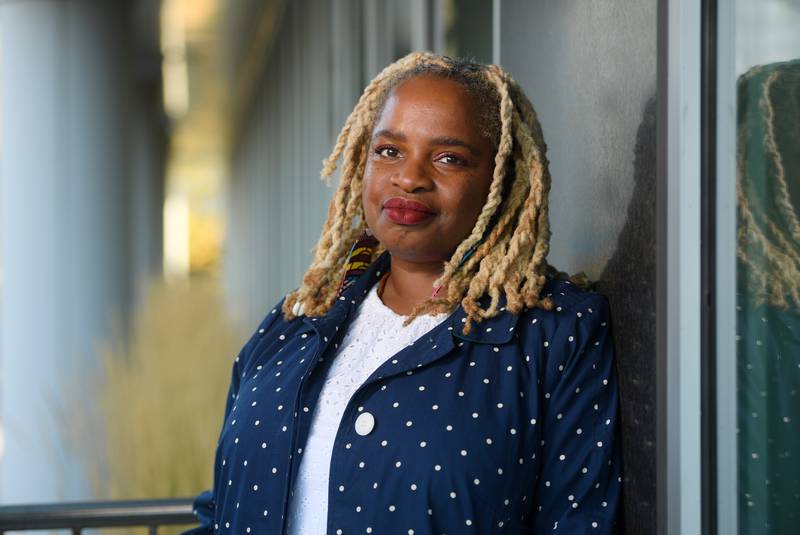
KJIPUKTUK (Halifax) – One week ago, during the daily COVID-19 briefing, Premier McNeil scolded residents of North and East Preston, Cherry Brook and Loon Lake for partying and linked that with the rate of infection in the community.
Predictably, the premier’s comments caused a social media backlash against Black people in Nova Scotia.
Now an open letter demands that Premier Stephen McNeil and Chief Medical Officer Dr. Robert Strang apologize to residents of these historic African Nova Scotian communities.
“When I heard the premier’s comments I was incensed,” says Dr. OmiSoore Dryden, who spearheaded the open letter. Dr. Dryden is the James R. Johnston chair in Black Studies at Dalhousie University.
When in January the coronavirus began to dominate the news Dr. Dryden was worried that the outbreak would be racialized, and that racist stereotypes would become prevalent. She was somewhat reassured when early on Dr. Strang and McNeil in their media briefings emphasized the importance of being good neighbours and talking things through, rather than calling the police.
Then the scolding became more and more frequent, culminating in last week’s reference to parties and community spread in North Preston, without mentioning that the community had been organizing to get ready for the COVID-19 pandemic since February, way before most people took the threat seriously.
See also: Miranda Cain on COVID-19 and the Prestons: “The little we do have, we have done it ourselves”
“People need to take responsibility for their actions. McNeil and Dr. Strang continue to claim that they are doing this work in a colourblind way and that they’re treating everybody equally, even though that is obviously not the case. Ideally, they should give an unreserved apology,” says Dryden.
Rather than always McNeil and Strang sharing the press conference platform, they should work with a team, Dr. Dryden says.
“If they brought in Mi’kmaq people, the Minister of African Nova Scotian Affairs, people with disabilities, that would have been a way to say we’re in this collectively,” she says. “But anytime somebody says to them that people are marginalized, their response is that we treat everybody equally. That’s not good health practice.”
The letter also emphasizes the need for a comprehensive proactive plan on how to deal with African Nova Scotian communities as they face the pandemic.
“If we were to focus on the lived realities of rural African Nova Scotian communities, what it means is working with local community people. You go door to door, handing out public health material. That’s not police, that’s a public health team.
“These are the kinds of proactive things you put in place with funding and resources, instead of simply reacting, saying, Oh my gosh, now we have a cluster, now we’re going to name where the cluster is. When you go in proactively, you’re starting to develop relationships and are able to disrupt some of the history of experimentation that has happened with Black and Indigenous people.”
Working closely with the Black community is crucial, Dr. Dryden says.
“We already have a lot of documentation and oral documentation where African Nova Scotian folks have gone to the hospital or emergency, and they’ve been policed and surveilled and did not get the help that they needed. That’s why there is so much suspicion among African Nova Scotians,” she says.
Finally, the open letter also emphasizes the importance of disaggregated (or anonymized) race-based data, something organizations such as the Health Association of African Canadians (HAAC) have been requesting for a very long time.
See also: Dr. Lynn Jones, Going to the ER while Black
“We don’t know how many out of the 17,000 tests that have happened are Black people? How many are immigrants? How many are people with disabilities? How many people in intensive care are Black people? We need that information, not so we can believe in a race biology outcome, we need the information so that we can make the tweaks to the system to disrupt how systemic racism works.”
Click here to read and sign the letter. The deadline for signatures is Tuesday, April 14, 2020 at midnight.
With a special thanks to our generous donors who make publication of the Nova Scotia Advocate possible.
Subscribe to the Nova Scotia Advocate weekly digest and never miss an article again. It’s free!



